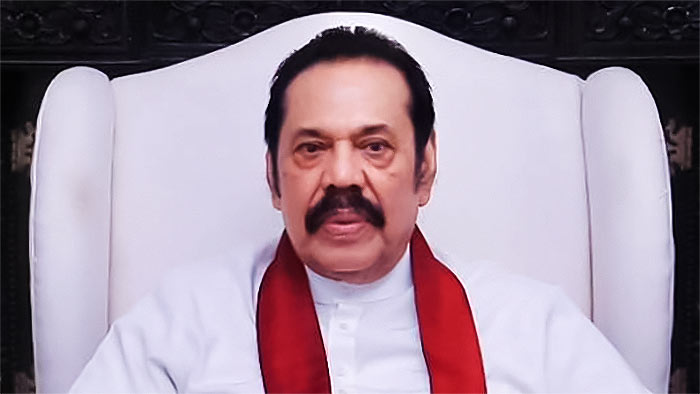Mahinda Rajapaksa slams UK sanctions on Sri Lankan military leaders

Former President Mahinda Rajapaksa has strongly condemned the United Kingdom’s decision to impose sanctions on three former top military officials in Sri Lanka, calling the move unjust and politically motivated.
The UK government announced travel bans and asset freezes against former Chief of Defence Staff Shavendra Silva, ex-Navy Commander Wasantha Karannagoda, and former Army Commander Jagath Jayasuriya, citing alleged human rights violations during Sri Lanka’s war with the LTTE. Rajapaksa called these allegations “unproven” and defended the actions of the military during the conflict.
“It was I, as the Executive President, who made the decision to militarily defeat the LTTE,” Rajapaksa stated in a press release. “Our armed forces carried out that mission with discipline and dedication, not against the Tamil people but against a terrorist group.”
He highlighted that during the 2002 ceasefire agreement, the LTTE carried out 363 killings, and violence increased shortly after he took office in 2005. Rajapaksa recalled several attacks, including suicide bombings and claymore mine explosions that killed dozens of soldiers and civilians.
Despite early efforts at peace talks in 2006, Rajapaksa said the LTTE unilaterally withdrew from negotiations. The turning point, he noted, was a deadly landmine attack on a civilian bus in Kebithigollewa in June 2006, which killed 64 people, including children.
Military operations began in July 2006 after the LTTE blocked irrigation water from the Mawilaru anicut, and continued until the LTTE’s defeat in May 2009.
Rajapaksa rejected claims of widespread human rights abuses, citing British Parliamentarian Lord Naseby’s 2017 statement referencing communications from UK Defence Attaché Lt. Col. Anton Gash, which reportedly praised the discipline of Sri Lankan troops and denied any policy to kill civilians.
He also pointed to the 2010 presidential election as evidence that the Tamil people did not see the military as an enemy. The Tamil National Alliance (TNA) backed his former army commander as the opposition candidate, who went on to win over 60% of the vote in the Northern and Eastern Provinces.
Rajapaksa further criticized the sanctions against Vinayagamoorthy Muralitharan, also known as Karuna Amman, a former LTTE commander who defected in 2004 and joined democratic politics. He said this was a clear case of punishing anti-LTTE Tamils to satisfy the Tamil diaspora in the UK.
He also accused the UK of double standards, noting that during the final stages of the war, UK Foreign Secretary David Miliband visited Sri Lanka to demand a halt to military operations. According to Rajapaksa, leaked documents later showed Miliband’s actions were aimed at gaining Tamil votes in the UK.
Rajapaksa emphasized that Sri Lanka’s war was against what the FBI once called “the world’s deadliest terrorist organization,” and reminded that over 27,000 Sri Lankan military and police personnel died during the conflict, along with thousands of civilians.
“The UK itself has passed laws in 2021 and 2023 to protect their armed forces from similar accusations. I expect our present government to defend our military personnel with the same commitment,” Rajapaksa said.
He ended by urging the government to stand firmly by those who defended the nation and are now facing “unfair persecution” abroad.

Latest Headlines in Sri Lanka
- Sri Lanka to reveal Easter attack suspects before April 21, 2025 March 30, 2025
- Sri Lanka introduces online service for new water connections March 30, 2025
- Elephant Pass Salt Factory opens – ‘Raja Lunu’ hits the market March 29, 2025
- Sri Lankan Government steps up efforts to resolve SME debt crisis March 29, 2025
- Two arrested for aiding IGP Deshabandu Tennakoon March 29, 2025



Don’t worry. When all Starmer and Lammy can do is to whine like a door mouse once in a blue moon about violation of every humanitarian and war crime laws, slaughtering women and children by Netanyahu et al, something got to be done by them to appear to be serious international leaders.